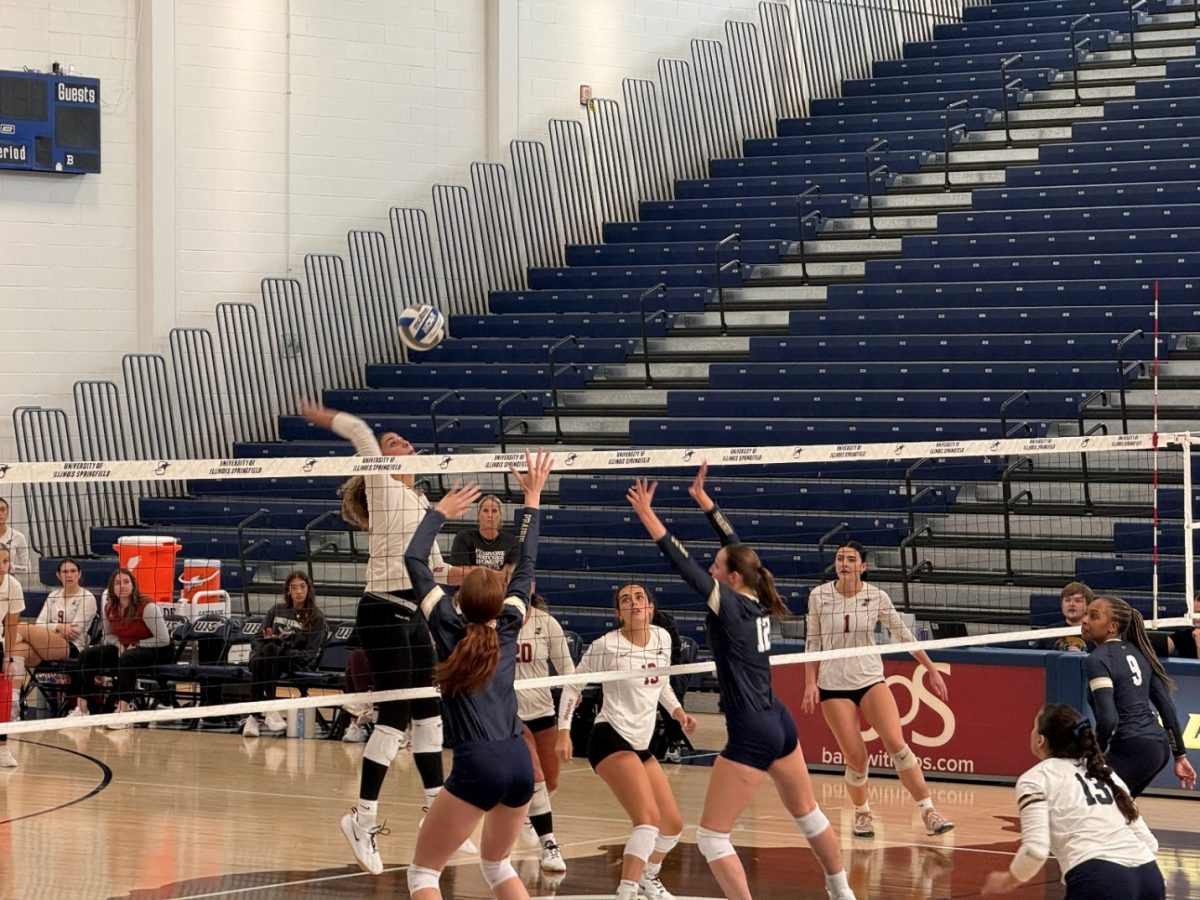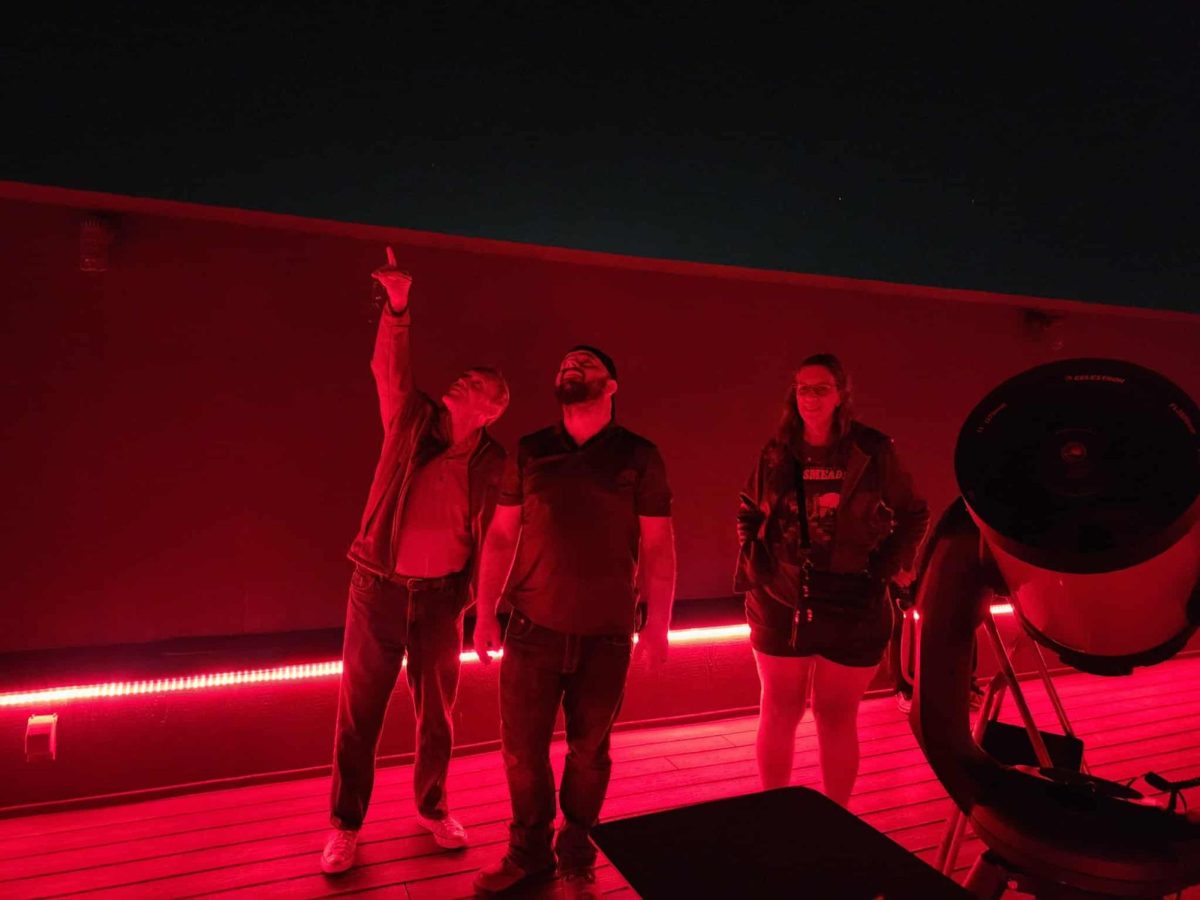On September 13, the University of Illinois Springfield (UIS) Campus Senate convened for a meeting filled with important updates and passionate discussions. Topics ranged from academic program evaluations to university operations, with several key university leaders presenting their insights.
Chancellor’s update on enrollment, budget and future planning
The Chancellor kicked off the meeting with an overview of campus activities and goals. Despite an 11% increase in enrollment last year, numbers remain stable. According to her, the university is on track financially, adhering to the budget presented to system leaders, with strategic plans extending through 2029.
To address fiscal challenges, the Chancellor outlined three key priorities:
- Academic Portfolio Review: Beginning October 1, all academic programs will undergo a review to ensure they meet enrollment and completion standards set by the Illinois Board of Higher Education (IBHE). Programs with low enrollment will be placed on a “Watch List” and considered for possible restructuring or discontinuation.
- Deficit Reduction: The university aims to balance its annual budget by 2029 in line with deficit reduction plans.
- Student Retention: Efforts will focus on personalized support to enhance student retention and graduation rates, particularly assisting those who missed enrollment deadlines.
Staffing and organizational changes
The Chancellor addressed staffing challenges, including difficulty in filling positions such as a front desk role in her office. A broader organizational rethink was discussed, including the idea of expanding responsibilities for existing staff with corresponding compensation.
Plans were also introduced for a flexible workspace model inspired by the Discovery Partners Institute (DPI).
The university will implement a “hotel-ling model” for shared workspaces, aiming to optimize campus facilities, reduce costs, and shrink the physical footprint of the campus.
Strategic investments and campus growth
A significant portion of the discussion centered around the university’s growth strategies while maintaining financial responsibility. The administration is exploring ways to reallocate resources, with a focus on utilizing the $1.1 million remaining from previous projects. Work is also ongoing to ensure scholarships and athletics expenditures are managed responsibly.
Senate Chair report focused on faculty and program reviews
Senate Chair Dr. Lynn Fisher covered the meeting’s agenda and announced the upcoming course evaluation surveys for the fall semester. In line with the academic portfolio review, three faculty members will be nominated to participate in assessing the health and relevance of various academic programs.
Good Idea Fund
Cornell from the Provost’s Office introduced the Good Idea Fund, providing up to $5,000 in funding for innovative campus projects, with applications due by October 5.
SGA update: Upcoming elections
Student Government Association (SGA) President Emmanuelle Yakana announced that SGA elections are set for September 18-19, encouraging student engagement in campus leadership.
Students voice concerns over leadership and university identity
The open discussion segment turned heated as several attendees raised concerns about recent campus developments, particularly the departure of Justin Rose, the former head of the Diversity Center.
Women’s Center Program Director Rexanne Whorton announced her decision to leave UIS, citing differences in values with the university’s leadership. She criticized the campus environment, claiming many do not feel safe and discouraging others from enrolling.
Associate Professor Livia Woods highlighted Rose’s impact, sharing that over 50 students had contacted her within days of his departure, expressing how he influenced their decision to come to, stay at, and graduate from UIS. She argued that his exit could harm the university’s efforts toward enrollment, retention, and financial health.
Environmental studies student Salem King also echoed strong criticism, crediting their engagement at UIS to the influence of key individuals like Rose, Whorton and Dr. King expressed frustration with the administration, stating it has consistently ignored the needs of those affected by its decisions.
Conclusion: A call for dialogue and collective responsibility
Chair Fisher and Chancellor Gooch closed the meeting with reflections on the importance of open dialogue. Fisher emphasized that the Senate is just one forum for addressing campus concerns and recognized the recurring themes of strategic priorities, campus identity, and support for students of color.
Chancellor Gooch acknowledged Rose’s positive impact but stressed that his departure was a personnel matter that could not be discussed publicly. She urged the campus community to engage in collective problem-solving while maintaining the confidentiality of certain matters.
The meeting underscored the challenges facing UIS as it seeks to balance fiscal responsibility, academic program evaluations, and community concerns amidst ongoing debate and scrutiny.






